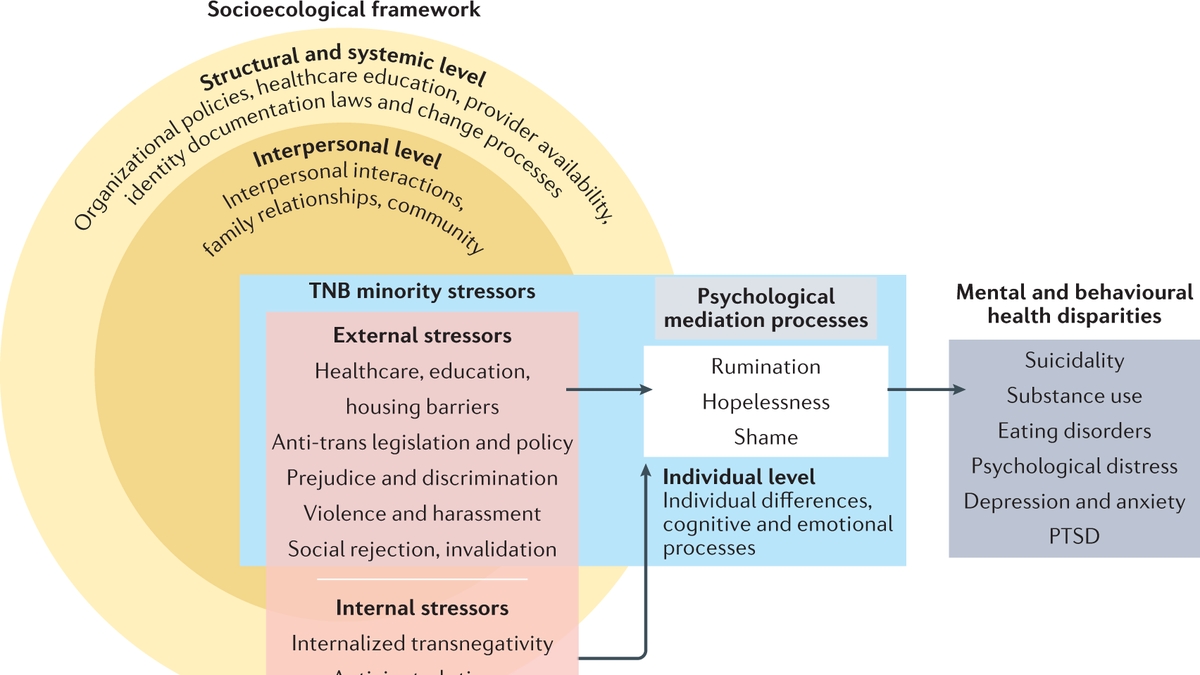
The mental health of transgender men and women, along with non-binary and gender-diverse individuals, is a pressing issue that has long been overlooked. A recent nationally representative analysis published in The Lancet Public Health journal paints a troubling picture, revealing that one in six transgender men and women in England risk long-term mental health conditions. Alarmingly, this risk nearly doubles for non-binary transgender individuals, with nearly one in two individuals facing the same danger.
The Scale of the Problem
These disturbing statistics are derived from data combined from the English GP Patient Survey. The study illuminates the widespread discrimination that trans, non-binary, and gender-diverse individuals face, leading to heightened stress levels and an increased risk of poor mental health. Furthermore, the study emphasizes the crucial need for improved healthcare support and inclusive practices, particularly in addressing the mental health needs of these communities.
According to data from the 2021 census, there are over 250,000 transgender people in the UK. However, many members of this community struggle to receive the healthcare they need. The creation of a more inclusive healthcare environment is therefore not just a social necessity, but a medical imperative.
Addressing the Inequities
The need to tackle the health inequalities faced by transgender people in the UK is urgent. Steps must be taken to ensure that the healthcare system meets the needs of all patients, regardless of their gender identity. This includes addressing gender-related questions in healthcare surveys to better understand and support patient diversity.
It’s also important to note that this isn’t just a domestic issue. Research studies globally show a significantly elevated risk of poor mental health among LGBTQ individuals compared to cisgender and heterosexual individuals. Depression, anxiety, suicidality, and general distress demonstrate the largest mental health disparities. Minority stress theory suggests LGBTQ individuals experience unique stressors such as discrimination, violence, and identity concealment, which are linked to their sexual or gender identity.
Societal Barriers and Their Impact
Factors related to societal integration barriers such as low social trust, unemployment, and lack of stable housing also play a significant role in LGBTQ mental health. LGBTQ individuals are about two to three times as likely to experience depression, anxiety, and substance abuse compared to heterosexual and cisgender people. There is also a substantially elevated risk of suicidal thoughts and behavior among LGBTQ individuals.
Transgender women, in particular, experience a high prevalence of homelessness, which can affect their likelihood of acquiring HIV infection and lead to poor medical outcomes. Longer duration and chronic homelessness might indicate greater unmet needs, which increases their likelihood for acquiring HIV infection.
The Path Forward
There is a growing body of research on cross-cultural psychiatry in the Global South. However, much of the existing LGBTQ mental health research and treatment development work has been conducted in the Global North, leading to limited research contextualizing LGBTQ populations within Global South mental health constructs. This gap in knowledge must be addressed to create a truly inclusive and effective healthcare system.
As the data clearly shows, there is an urgent need for improved healthcare support and inclusive practices for transgender men, women, and non-binary individuals, both in England and globally. By addressing these issues, we can reduce the risk of long-term mental health conditions in these communities and create a more equitable healthcare system for all.



